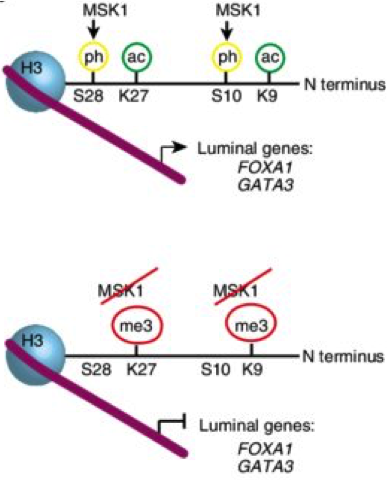
For many patients with breast cancer, symptomatic bone metastases appear after years of latency. How micrometastatic lesions remain dormant and undetectable before initiating colonization is unclear. Here, we describe a mechanism involved in bone metastatic latency of oestrogen receptor-positive (ER+) breast cancer. Using an in vivo genome-wide short hairpin RNA screening, we identified the kinase MSK1 as an important regulator of metastatic dormancy in breast cancer. In patients with ER+ breast cancer, low MSK1 expression associates with early metastasis. We show that MSK1 downregulation impairs the differentiation of breast cancer cells, increasing their bone homing and growth capacities. MSK1 controls the expression of genes required for luminal cell differentiation, including the GATA3 and FOXA1 transcription factors, by modulating their promoter chromatin status. Our results indicate that MSK1 prevents metastatic progression of ER+ breast cancer, suggesting that stratifying patients with breast cancer as high or low risk for early relapse based on MSK1 expression could improve prognosis.